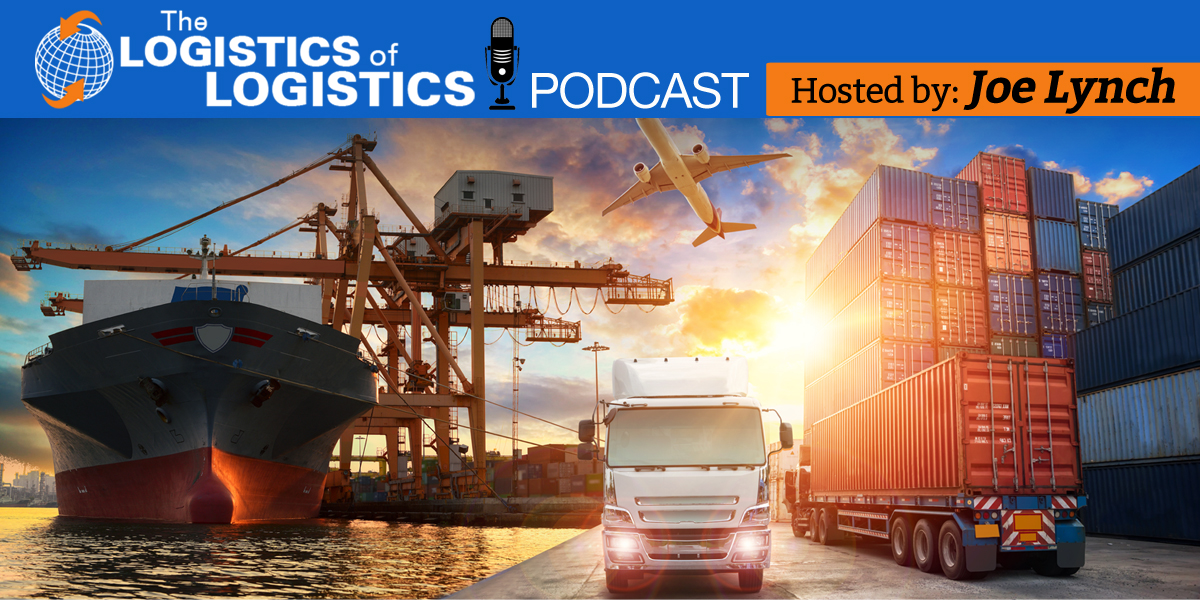[00:21] Opening / Introduction
[00:57] Tell us a little bit about what you’re up to.
- I spend all of my time in supply chain and logistics software, focusing on the lower-middle market.
[01:54] What will the 3PL industry look like in 2025?
- There is a slow, creeping evolution of technology as CRM systems get better and better. These will make brokers more efficient and help them focus more on customer service, specialization, etc.
- This is largely a relationship business, and not all of it can be automated.
- In 2025, there will be more consolidation and technology will play a larger role.
[04:43] What types of companies do you think will be at the top?
- Domestically, I think CH Robinson, JB Hunt, UPS, and FedEx are doing a decent job.
- A non-traditional 3PL is Amazon, who is both a customer and a competitor to some of the other domestic 3PLs.
- Internationally, DHL and some others are good partners with people that I talk to domestically.
- Hustling is mandatory for everyone in this space, but the twist is working smart versus working hard.
[07:48] Do you see any of those tech names like Uber and Convoy being at the top of the heap in 2025?
- It’s never been easier to develop software and technology than it is right now because there are so many tools and platforms.
- The new entrants understand technology far better than the incumbents do.
- They have the potential to create a call option on success, but that doesn’t mean they’re all going to be successful.
- More domain expertise needs to be inside of these start-ups to completely understand the dynamics.
- The best founders that I’ve seen in the space humbly embrace what they don’t know and have good partners come in to strengthen their greatest weakness.
[12:30] Tell us about some of the trends you think are going to impact the industry over the next five years.
- Historically, a lot of the industry hasn’t embraced technology. There is a fair amount of inefficiency. It’s hard to predict the evolution of technologies that will be impactful on the space.
- There’s a lot of discussion around blockchain. I’m not sold that there’s a use case for it.
- Automation is being tested in the US.
- Consolidation will be one of the ways the upper half of the 3PL industry will better compete.
- Of course, there is the migration from retail to ecommerce.
[17:29] Ordering from sites like Amazon makes people think “why am I not getting this level of service from my 3PL?” The interface is much nicer, too.
- I’ve seen the best user interface people focusing on mobile. The mobile interfaces will get increasingly better. Web interfaces are getting better too.
- The tools used to find out where people are clicking on a website or on an app have gotten a lot better.
[19:57] One trend I’ve seen over the past ten years is that the shippers didn’t necessarily have to pick a 3PL based on technology and investment. Now, they don’t want to buy their own TMS and integrate it into their ERP. They want to find a 3PL because they will know how to manage all of this already.
- It was a lot harder to integrate five or ten years ago.
- Still, the ability for a 3PL to provide a fuller solution is a benefit to them in servicing their customers.
[21:41] What drives consolidation? Why should it happen?
- Global customers are looking for more visibility and more coverage.
- They’re looking for trailers to be dropped at warehouses at pre-determined times.
- The concept of providing a more wholesome overall service is at the heart of what’s driving consolidation and what I expect to continue.
[23:12] You mentioned the global economy we live in. People are looking for global solutions.
- There’s the supply chain and the demand chain. On the demand chain, the market is heading towards anticipating where the demand is going to be.
- The concept of massive warehouses is breaking down. Smaller warehouses with micro inventory are getting more popular.
[25:18] What emerging technologies will shape the future of supply chain and logistics?
- Machine learning, for sure. A use case I’ve seen is training machines to look at invoices and picking off different pieces of information.
- Having the data in the first place is important, and that doesn’t happen overnight.
- Video and voice are growing, such as cameras on trucks and Bluetooth headsets.
- I hope that the ability to integrate different data systems gets better.
[30:05] Who do you think will be successful among the digital freight brokers?
- The freight brokers that are most successful are the ones that have lots of shipper relationships.
- Many of the digital freight brokers I see don’t have any relationship with shippers, and that makes it really hard.
- Amazon and JB Hunt have a lot of shipper density. NEXT Trucking is an emerging player with a lot of cap to freight.
- Just because you create a logistics app doesn’t mean anyone is going to use it.
[37:19] I saw an article recently about how Amazon is buying up old malls.
- It’s all about having inventory closer to the people who will purchase it.
- With demand planning, you can put the inventory in these places and reduce the overall length of haul.
[40:34] Why, in the last decade, are there suddenly so many investors interested in the logistics industry?
- Putting money to work in businesses that are relatively inefficient and have the potential to improve over time are a good place for capital to go.
- We’re seeing people take advantage of a space that hasn’t had much innovation.
[44:19] Occasionally, I’ve talked to people representing logistics industry investors who have very little knowledge about the space.
- Sometimes, it’s because people have to look at many investments to make one.
- People will invest because they received advice from someone they trust, and they’ll learn about the industry over time.
[47:06] What would you recommend the owners and employees of smaller companies do to prepare for 2025?
- If you’ve got the ability, get someone who is responsible for market intelligence. Getting the most relevant info about what is happening with competitors, innovation, and investments is gold.
- Create a mechanism to understand what is happening in the world around your company.
- You need to get someone who knows what information is important for your company.

